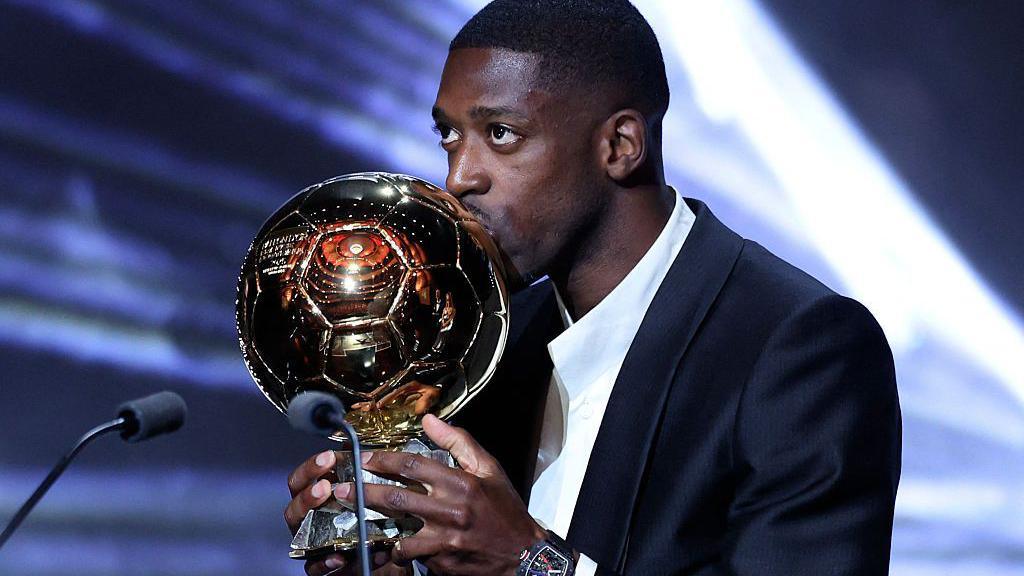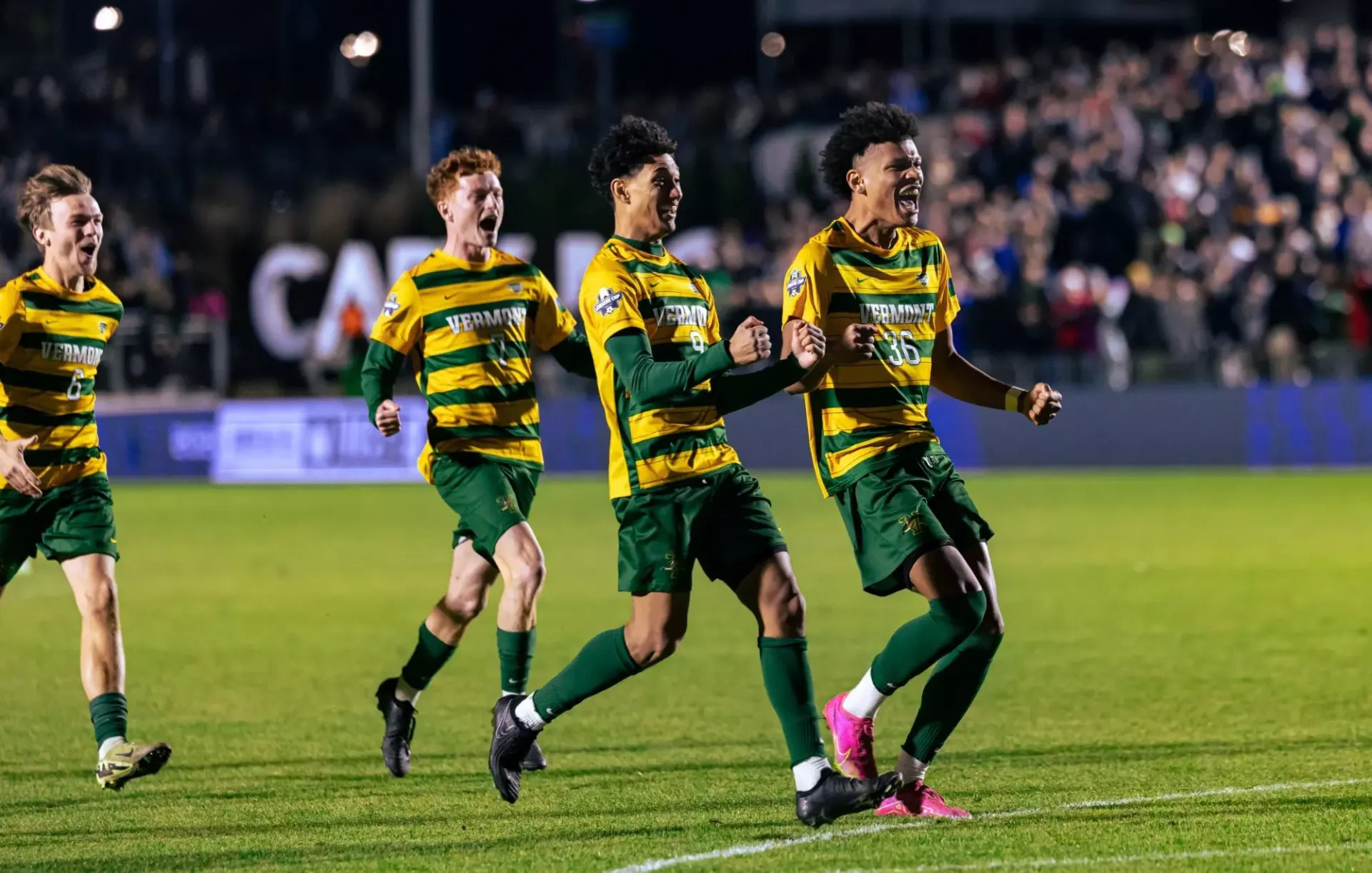The U.S. Soccer Federation released its analysis of men's and women's Division I college soccer last week. Their main argument is clear from the report's title: "Ensuring College Soccer Thrives in the Modern Era of College Athletics and the Changing U.S. Soccer Landscape."
Ousmane Dembele: A Narrative on Nonlinear Success and the Importance of Environment
By: Mehdi Alamood
It is extremely rare for sports fans to agree on anything, especially in 2025. In this day and age, sports discourse is often characterized by hyperbole, where judgments and extreme opinions are made swiftly. If a new player has one bad game or a slow start at a new club, they are quickly labeled a flop, waste, or garbage. If a new player has one good game or an explosive start, they are called a generational talent, the next big thing, a legend. Conversations that lack nuance and context, instead existing only in extremes, can be exhausting. How can one player be touted as a generational prospect one day and worthless the next?
That is why Monday, September 23, 2025, was so special. For once, in a world where fans refuse to give credit to opposition players, everyone paused to congratulate Ousmane Dembélé on winning the Ballon d'Or. The clouds of toxicity parted for a moment, and light shone brightly on a player unanimously agreed to be the best in the world.

The question is why? Why did fan bases across the globe come together to applaud the Frenchman? Why was there no outrage, no accusations of robbery or rigging, no videos of angry content creators declaring he didn't deserve it? Instead, the opposite happened. Fans from all walks of life and all allegiances came together to celebrate the accomplishments of the French striker.
The answer lies in something bigger than the goals he scored or the trophies he won. The world celebrated Ousmane because of the journey that brought him here. We celebrate him because it all worked out.
To understand the love and appreciation he now receives, you must first understand the hate and pain that defined his past.
Dembélé broke out in 2015 at French club Rennes, where, as an 18-year-old, he scored 12 goals and provided 5 assists in 29 Ligue 1 matches. There, he captured imaginations with dazzling runs, two-footed finishing, and an ability to create something from nothing. Europe's giants soon came calling. In the summer of 2016, he signed for Borussia Dortmund.
In Germany, his rise accelerated. In his lone season, he recorded 10 goals and 21 assists, helping Dortmund win the DFB-Pokal. His talent earned him labels like prodigy, next big thing, and even the French Messi. Fans across the world debated which club he should join next, certain he would become unstoppable wherever he landed.
That landing spot came quickly. In the summer of 2017, Barcelona paid a staggering €135 million to sign him — then the second-highest transfer fee in football history. He was tasked with replacing Neymar, carrying the weight of Barcelona's future. However, the pressure and expectation soon turned toxic. Across six seasons, he never scored more than eight league goals in a campaign, missing more than 100 matches due to injuries. To many Barcelona fans, he became the symbol of wasted money and broken dreams.
By 2022, after years of mounting tension, the relationship between the club, Dembele, and the supporters was irreparable. Barcelona isolated him, stripped him of dignity, and all but forced him out. What once seemed destined to be a glittering career appeared set for quiet failure.
Then, in the summer of 2023, Dembélé left through the back door, signing for Paris Saint-Germain. Many saw the move as a last chance. But under Luis Enrique, he was reborn. The coach believed in him, not as a winger shackled by past mistakes, but as a central figure with new responsibilities. Dembélé shifted into a false nine role — and with it, his career shifted course.
No longer judged solely on one-on-ones and wide play, he thrived between the lines, combining vision, timing, and composure. More than his attacking brilliance, however, was his transformation off the ball. At Barcelona, he was criticized as lazy; in Paris, he became the hardest-working presser in Europe, leading the line with relentless intensity. He evolved from luxury player to indispensable leader.
The numbers tell the story. In 2024–25, Dembélé scored 33 goals and delivered 15 assists in 49 appearances. He finished joint-top scorer in Ligue 1 with 21 goals, was named Ligue 1 Player of the Year, and most importantly, spearheaded PSG's first-ever Champions League triumph. His contributions were decisive: two assists in the final against Inter, a goal at Anfield in the quarterfinals, and a crucial strike against Arsenal in the semifinals. His dozen goal contributions in a single Champions League campaign set a record for a French club player.
Dembélé's journey illustrates how easily talent can fade under the weight of expectation, injury, and doubt. Yet through adaptability, perseverance, and the right environment, he not only revived his career — he fulfilled his destiny.
And so, when he lifted the Ballon d'Or in 2025, it felt bigger than an individual award. Instead, it was the culmination of a narrative arc in which pain, doubt, and waiting were not dead ends but stepping stones. It was proof that even when everything seems lost, redemption is possible.
Because in the end, against the odds, it all worked out.
Latest posts in our blog
Be the first to read what's new!
It is extremely rare for sports fans to agree on anything, especially in 2025. In this day and age, sports discourse is often characterized by hyperbole, where judgments and extreme opinions are made swiftly. If a new player has one bad game or a slow start at a new club, they are quickly labeled a flop, waste, or garbage. If...
From a financial point of view, Caitlin Clark is becoming the most impactful athlete of the 21st century. The 23-year-old basketball star has redefined how popular women's sports can be and, most importantly, the revenue it can command.
The NBA SHOULD Rig the Draft Lottery
It is no secret that the NBA has a ratings issue, with viewership down across the board as the league loses further ground to the NFL. I am here with the answer, embracing the art of manufacturing storylines to gain mass public interest.



